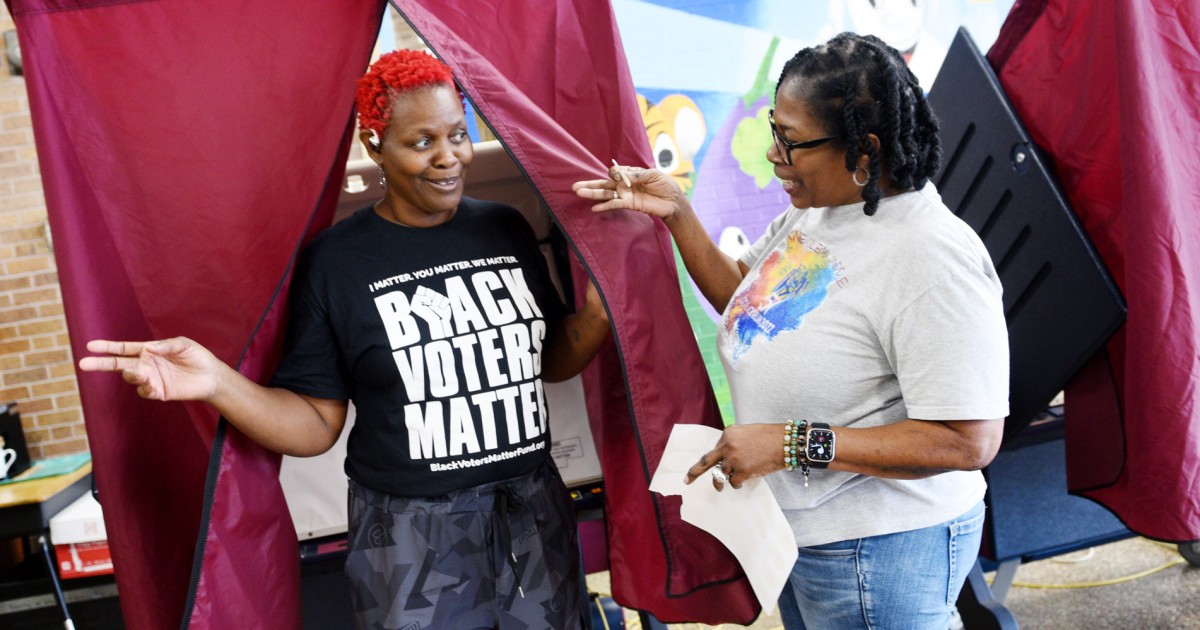
WASHINGTON — The conservative-majority Supreme Court on Wednesday considered whether to eviscerate a key provision of the landmark Voting Rights Act in a congressional redistricting case from Louisiana.
The justices, who expanded the scope of the case over the summer, heard oral arguments on whether states can ever consider race in drawing new districts while seeking to comply with Section 2 of the 1965 law, which was enacted against a backdrop of historic racial discrimination to protect minority voters.
The long-running dispute concerns the congressional map that Louisiana was required to redraw last year after being sued under the Voting Rights Act to ensure that there were two majority-Black districts. The original map only had one such district in a state where a third of the population is Black.
The Supreme Court originally heard the case earlier this year on a narrower set of legal issues but, in a rare move, it asked in June for the parties to reargue it. The court then raised the stakes by asking the lawyers to focus on a larger constitutional issue.
Now, the justices are deciding whether drawing a map to ensure there are majority-Black districts violates the Constitution’s 14th and 15th amendments, which were both enacted after the Civil War to ensure equal rights for former slaves, including the right to vote.
Conservatives argue that both constitutional amendments prohibit consideration of race at any time. The Supreme Court has previously embraced this “colorblind” interpretation of the Constitution, most notably in its 2023 ruling that ended the consideration of race in college admissions.
Louisiana, which initially defended its new map, has switched sides and joined a group of self-identified “non-African-American” voters who sued to block it on constitutional grounds. The Trump administration also backs the state’s new position.
The map is being defended by civil rights groups that challenged the original map.
The Voting Rights Act has long been a target of conservative legal attacks, with the Supreme Court weakening it in two major rulings in 2013 and 2021.
But two years ago, the court surprisingly reaffirmed the requirement that race be used to redraw districts when necessary to comply with the law in a different congressional redistricting case from Alabama.
The ruling was 5-4, with two conservatives, Chief Justice John Roberts and Justice Brett Kavanaugh, joining the court’s three liberals in the majority. Kavanaugh, however, expressed reservations about the long-term future of Section 2.
A broad ruling in Louisiana’s favor would reduce the need for states to draw legislative districts composed largely of minority groups and would likely lead to a reduction in the number of minority lawmakers in Congress and state legislatures.
A quick ruling could give Louisiana and other states time to draw new districts ahead of the 2026 midterm elections. With Black voters often voting Democratic, such a move could benefit Republicans.
Source link

